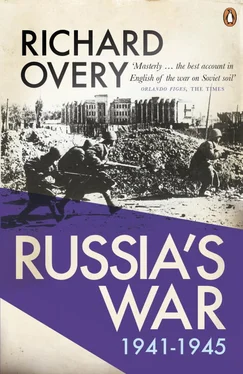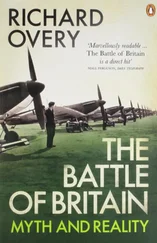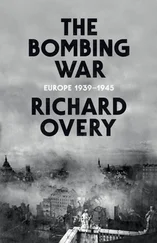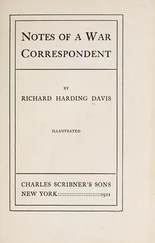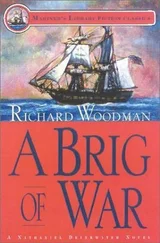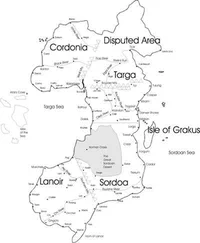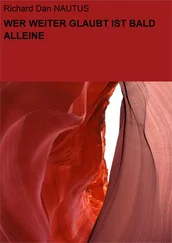Richard Overy - Russia's War
Здесь есть возможность читать онлайн «Richard Overy - Russia's War» — ознакомительный отрывок электронной книги совершенно бесплатно, а после прочтения отрывка купить полную версию. В некоторых случаях можно слушать аудио, скачать через торрент в формате fb2 и присутствует краткое содержание. Город: London, Год выпуска: 1999, ISBN: 1999, Издательство: Penguin Books Ltd, Жанр: military_history, на английском языке. Описание произведения, (предисловие) а так же отзывы посетителей доступны на портале библиотеки ЛибКат.
- Название:Russia's War
- Автор:
- Издательство:Penguin Books Ltd
- Жанр:
- Год:1999
- Город:London
- ISBN:978-0-14-192512-7
- Рейтинг книги:4 / 5. Голосов: 1
-
Избранное:Добавить в избранное
- Отзывы:
-
Ваша оценка:
- 80
- 1
- 2
- 3
- 4
- 5
Russia's War: краткое содержание, описание и аннотация
Предлагаем к чтению аннотацию, описание, краткое содержание или предисловие (зависит от того, что написал сам автор книги «Russia's War»). Если вы не нашли необходимую информацию о книге — напишите в комментариях, мы постараемся отыскать её.
[Contain tables. Best viewed with CoolReader.]
Russia's War — читать онлайн ознакомительный отрывок
Ниже представлен текст книги, разбитый по страницам. Система сохранения места последней прочитанной страницы, позволяет с удобством читать онлайн бесплатно книгу «Russia's War», без необходимости каждый раз заново искать на чём Вы остановились. Поставьте закладку, и сможете в любой момент перейти на страницу, на которой закончили чтение.
Интервал:
Закладка:
Stalin himself was a representative of the Central Committee, the leading organ of the Bolshevik Party and of the fledgling revolutionary state, in the threatened city of Petrograd. Survivors remembered a soft-spoken but arrogant man who was used to getting his own way and who treated his colleagues and subordinates with unusual harshness. He was adept at inventing conspiracies and hunting out treachery. He unearthed a plot in the Western Front command at Petrograd, and the plotters were removed. He helped to organize the defence of the city with threats and force. He had no scruples about punishing deserters or slackers or the hated bourgeoisie, the enemy of the new proletarian order, demonized by Bolshevik propaganda. For his work in Petrograd he shared with Leon Trotsky, Commissar of Defence, the honour of receiving the first award of the Order of the Red Banner. Stalin won a reputation for being both blunt and uncompromising. He characteristically ordered vigorous counter-attacks, whatever the cost in lives, and urged the Central Committee to sack hesitant or more scrupulous commanders. It would be rash to argue that Stalin’s behaviour during the civil war anticipated exactly the role he would play as Supreme Commander during the German-Soviet war between 1941 and 1945, but the resemblances are remarkable.
The civil war played a major part in defining the character of the new Communist state, for the success of the revolution of October 1917 had to be won through three years of cruel and desperate conflict. The civil war defined the enemies that the new society faced and continued to face in Communist demonology thereafter: the club of imperialist capitalist powers, which sent troops and supplies to help the counter-revolutionary forces; the counter-revolutionaries themselves, reactionary ‘bourgeois’ agents who were the mortal class enemies of the worker–peasant alliance; nationalist movements in the many non-Russian areas of the new state, which threatened to undermine the new proletarian commonwealth by promoting a narrow chauvinism. Stalin fought against them all with vigour in 1919 and continued to fight them with relentless terror until his death in 1953.
He was not alone in seeing the civil war not as a simple military conflict but as a clash of ideologies and social forces. The civil war placed Soviet Communism on a war footing. The new party became an agent of mobilization, in the towns, where workers were forced to join militia or dig defences, and in the villages, where food was seized with a savage disregard for peasant survival and farmers were drafted, often against their will, into the tough regime of the young Red Army. The language of the Party was spiced with military vocabulary; Party activists wore simple military-style uniforms (Stalin retained the habit throughout his life); thousands of new recruits into the Party in 1919 and 1920 came from the ranks of the Red Army. Military service and service to the Communist cause merged as one. The campaigns were undertaken in many cases by former officers of the Tsarist army, but control over strategy and operational decisions lay with local Military Committees or Soviets run by civilian revolutionaries, acting on the orders of the Central Committee. The army came to be viewed not as a professional force with its own institutions and commanders but as an arm of the broad social movement which was building Communism. The ideal of many revolutionaries was to do away with an army altogether and in its place to erect a popular militia of worker-peasant soldiers, the kind of revolutionary levée that Lenin, the architect of Bolshevik success in 1917, had described in State and Revolution , written the same year.
The effect of the Communist military struggle, which was finally won in 1920, was to create what one historian has described as a ‘militarized socialism’. 2Most of the Soviet élite of the 1920s and 1930s had either fought in or directed the civil war; those who had done neither found themselves at a disadvantage. The veteran mentality of the Party pervaded all areas of its activity. In the 1930s and during the war Stalin promoted to high office numerous men who had worked beside him in the civil war struggles, and also remembered those who had crossed him. That veteran loyalty kept in office many Stalinists who were manifestly inept. What they all shared was a profound belief that war and struggle was part of the order of things, a central characteristic of that stage of historical development in which the crumbling imperialist-capitalist order would give way to movements of social emancipation. They expected further foreign wars because it was in the nature of imperialism, as Lenin had also argued. They anticipated ceaseless struggles against the domestic enemies of revolution, whether peasant-capitalists or foreign spies. The result was a society that was kept in an almost perennial state of mobilization.
The cult of ‘struggle’ was not confined to the Soviet Union. It was central to the world-view of Adolf Hitler, who became during the war the greatest of the many enemies that Soviet Communism confronted. The widely shared belief in the necessity of conflict drew its substance from a generation of fin-de-siècle writing whose pessimistic forebodings of cataclysmic war and cultural decline were apparently borne out by the Great War of 1914–1918. The conflict provoked revolutionary upheaval in Russia and laid the foundations for German radical nationalism. The Communist belief that war was the locomotive of history, shunting old societies aside from the line to Utopia, was triumphantly demonstrated in 1917. Hitler’s view that war was the proper school of national reawakening and sociobiological reconstruction was predicated on the German defeat. The two versions of struggle were not pre-ordained to meet on the battlefield in 1941, but given Hitler’s view, expressed to his inner circle in the autumn of 1936, that since the eighteenth century the world had been rushing headlong towards a final historical reckoning with the tradition of the French Revolution and its bastard offspring, Bolshevism, such an outcome was always likely. 3
The ending of the civil war in 1920 left the Soviet Union a name not formally adopted until 1923 a nominal federation of national republics controlled in practice from the new Russian capital at Moscow. The cost of the civil war was the impoverishment of the country, the decline of industry, a famine that claimed millions of victims in the formerly grain-rich areas of the Ukraine and the loss of a fringe of territories which had belonged to the Tsarist empire – Finland, the Baltic states, Bessarabia (ceded to Romania) and half of Poland. As a result of these losses the new Soviet state was less European and more Asian than its predecessor. Its exclusion from Eastern Europe had been sealed in 1920 during a brief war with Poland, a state recently re-created by the post-war settlement. Polish leaders eager to take advantage of what they perceived to be the exhaustion of the Red Army invaded the Ukraine and occupied Kiev that May. Hatred of the Poles united Soviet society. Mikhail Tukhachevsky, one of the most successful of the younger civil war generals, handsome, forthright and personally courageous, led five armies against the main Polish forces and drove them back into Poland accompanied by some of the most savage fighting of the civil war. Poorly supplied and with tired troops, Tukhachevsky was finally halted in front of Warsaw. A treaty signed at Riga in March 1921 gave Poland a slice of the western Ukraine and pushed the Soviet frontier a hundred miles further to the east.
The Soviet leaders never forgot the war with Poland. Twenty years later the area was reoccupied amidst an orgy of reprisals. The defeat of 1920 showed that despite victory in the civil war the new state was weakly defended and insecure. Throughout the 1920s there were regular war scares, often based on the most trivial pretext – in 1923 when the Frenchman Marshal Foch visited Warsaw, in 1925 after the signing of the Treaty of Locarno (‘preparation for war against the USSR’, as the Soviet newspaper Pravda put it), in 1927 following the British decision to break off diplomatic relations. 4It is customary to see these fears as a product of domestic politics, a device to focus popular attention on the external enemy and to unify the Party, but Russia’s recent history, which included invasion by Germany and the Habsburg empire in 1914, intervention by fourteen states in the civil war and invasion by Poland in 1920, was enough in itself to encourage a constant vigilance and helps to explain the almost paranoid fear of attack or subversion that distinguished the Stalinist dictatorship.
Читать дальшеИнтервал:
Закладка:
Похожие книги на «Russia's War»
Представляем Вашему вниманию похожие книги на «Russia's War» списком для выбора. Мы отобрали схожую по названию и смыслу литературу в надежде предоставить читателям больше вариантов отыскать новые, интересные, ещё непрочитанные произведения.
Обсуждение, отзывы о книге «Russia's War» и просто собственные мнения читателей. Оставьте ваши комментарии, напишите, что Вы думаете о произведении, его смысле или главных героях. Укажите что конкретно понравилось, а что нет, и почему Вы так считаете.
